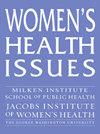产后永久避孕决策的不确定性:医生和患者的观点。
IF 2.5
2区 医学
Q2 PUBLIC, ENVIRONMENTAL & OCCUPATIONAL HEALTH
引用次数: 0
摘要
目的:我们试图了解患者和医生如何看待永久避孕决策过程中的不确定性:2022-2023 年,我们采访了有永久避孕意愿记录的产后患者(81 人)及其接生医生(67 人)。符合条件的患者在加利福尼亚州、俄亥俄州、伊利诺伊州和阿拉巴马州的四家研究医院之一分娩。我们使用快速内容分析法和主题内容分析法来制定和完善与永久避孕决策中的不确定性有关的主题:主要研究结果:大多数患者表示完全确定他们是否决定采取永久避孕措施,但也有一些患者表示怀疑。在接受永久避孕后,一些患者谈到了悲伤,但总体上肯定了他们的决定。一名患者说,他们希望自己曾考虑过其他避孕方法。医生报告说,他们使用了一系列策略来避免患者后悔,包括确保患者对自己的决定有 100% 的把握、根据患者的特点推断其确定性、要求患者考虑所有可能影响决策的情况,以及在多次互动中重复咨询:患者的经历揭示了患者避孕决策过程的深度、流动性和细微差别。医生在提供咨询时,有时会将潜在的遗憾作为中心,从而无法应对这种细微差别。个性化和支持性的避孕咨询必须承认避孕决策的复杂性。共同决策有助于确保患者在知情的情况下自主决定自己的生殖生活。本文章由计算机程序翻译,如有差异,请以英文原文为准。
Uncertainty in Postpartum Permanent Contraception Decision-Making: Physician and Patient Perspectives
Purpose
We sought to understand how patients and physicians conceptualize uncertainty in the permanent contraception decision-making process.
Basic Procedures
In 2022–2023, we interviewed postpartum patients with a documented desire for permanent contraception (n = 81) and their delivering physicians (n = 67). Eligible patients gave birth at one of our four study hospitals in California, Ohio, Illinois, and Alabama. We used rapid content analysis and thematic content analysis to develop and refine themes related to uncertainty in permanent contraceptive decision-making.
Main Findings
Most patients reported full certainty in their decision regarding permanent contraception, although some expressed doubts. After receiving permanent contraception, some patients discussed grief but overall affirmed their decision. One patient said they wished they had considered other contraceptive options. Physicians reported using a range of strategies to safeguard from patient regret, including ensuring patients were 100% certain with their decision, inferring certainty based on their characteristics, asking patients to think through all scenarios that could affect decision-making, and repeat counseling during multiple interactions.
Principal Conclusions
Patient experiences reveal the depth, fluidity, and nuance of patients' contraceptive decision-making processes. Physicians sometimes failed to grapple with this nuance by centering potential regret in their counseling. Personalized and supportive contraceptive counseling that acknowledges the complexity of contraceptive decision-making is imperative. Shared decision-making can help ensure patients can make informed and autonomous decisions about their reproductive lives.
求助全文
通过发布文献求助,成功后即可免费获取论文全文。
去求助
来源期刊

Womens Health Issues
Multiple-
CiteScore
4.50
自引率
6.20%
发文量
97
审稿时长
32 days
期刊介绍:
Women"s Health Issues (WHI) is a peer-reviewed, bimonthly, multidisciplinary journal that publishes research and review manuscripts related to women"s health care and policy. As the official journal of the Jacobs Institute of Women"s Health, it is dedicated to improving the health and health care of all women throughout the lifespan and in diverse communities. The journal seeks to inform health services researchers, health care and public health professionals, social scientists, policymakers, and others concerned with women"s health.
 求助内容:
求助内容: 应助结果提醒方式:
应助结果提醒方式:


